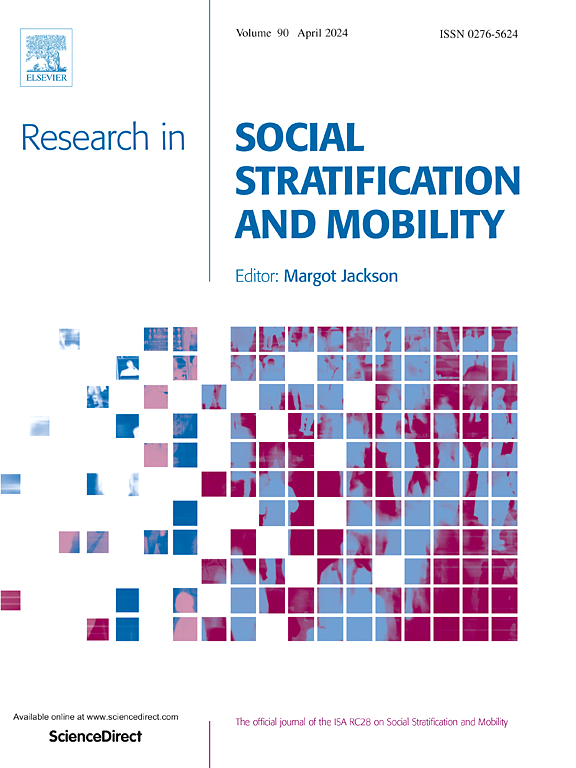母亲的职业技能会影响孩子的发展过程吗?
IF 2
1区 社会学
Q1 SOCIOLOGY
引用次数: 0
摘要
本研究旨在探讨母亲的职业技能是否会影响儿童的发展。我认为,虽然教育是父母技能的一个有价值的代表,但它未能捕捉到人力资本的一个重要方面:父母通过职业经验获得的技能。父母们通过在职学习来提高他们的人力资本,职业专业知识成为他们技能组合中不可或缺的一部分。结合纵向家庭数据(NLSY79-CYA)和O*NET数据集,采用双向固定效应、逆概率加权和非对称固定效应模型。我利用了职业转换后母亲职业所需技能水平的变化。结果表明,当母亲转变为需要更高水平数学技能的角色时,她们的孩子的数学能力会提高。在读写能力方面也观察到类似的趋势,尽管影响不那么持久。此外,较长的产妇工作任期放大了这些影响,这主要是由于技能要求的增加而不是减少。此外,高经济地位家庭的孩子比低经济地位家庭的孩子从母亲职业技能要求的提高中获益更多。本文章由计算机程序翻译,如有差异,请以英文原文为准。
Do mothers’ occupation-specific skills impact children’s developmental processes?
This study examines whether mothers’ occupation-specific skills influence children’s development. I argue that while education is a valuable proxy for parental skills, it fails to capture an important dimension of human capital: the skills parents acquire through their occupational experiences. Parents enhance their human capital through on-the-job learning, with occupation-specific expertise becoming integral to their skill sets. Combining longitudinal family data (NLSY79-CYA) and the O*NET dataset, I employ two-way fixed effects, inverse probability weighting, and asymmetric fixed effects models. I exploit changes in the required skill levels of mothers’ occupations following job switches. Results indicate that when mothers transition to roles requiring higher levels of mathematical skills, their children’s mathematical abilities improve. Similar trends are observed for literacy skills, although the effects are less consistently robust. Additionally, longer maternal job tenure amplifies these effects, which are primarily driven by increases in skill requirements rather than decreases. Furthermore, children in high-SES families benefit more from increases in their mothers’ occupational skill requirements than children in low-SES families.
求助全文
通过发布文献求助,成功后即可免费获取论文全文。
去求助
来源期刊
CiteScore
7.80
自引率
6.00%
发文量
46
期刊介绍:
The study of social inequality is and has been one of the central preoccupations of social scientists. Research in Social Stratification and Mobility is dedicated to publishing the highest, most innovative research on issues of social inequality from a broad diversity of theoretical and methodological perspectives. The journal is also dedicated to cutting edge summaries of prior research and fruitful exchanges that will stimulate future research on issues of social inequality. The study of social inequality is and has been one of the central preoccupations of social scientists.

 求助内容:
求助内容: 应助结果提醒方式:
应助结果提醒方式:


